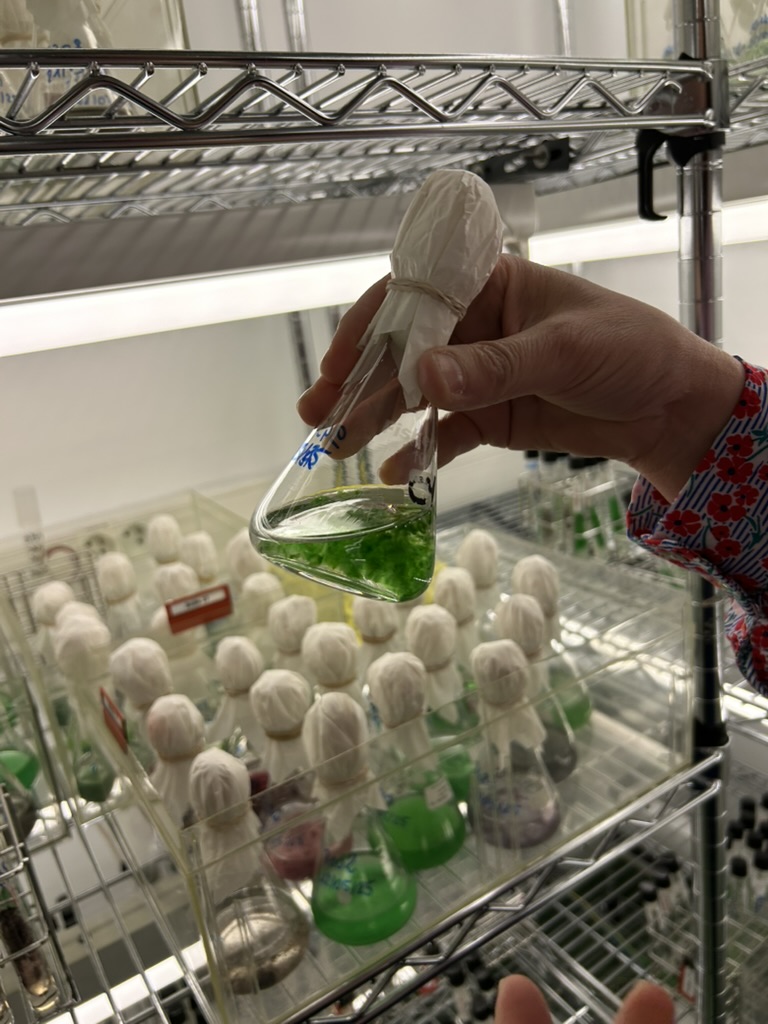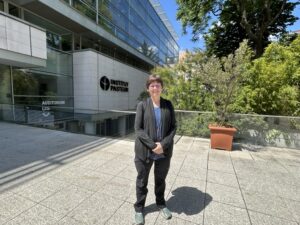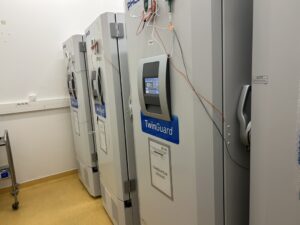Scientific Advisory Board Meeting at Institut Pasteur
June 13, 2025
May 22, 2025
Location
Paris, France
 In May 2025, USCCN Steering Committee member Kyria Boundy-Mills, curator of the Phaff Yeast Culture Collection at the University of California, Davis, participated in a Scientific Advisory Board (SAB) meeting of biological collections at the Institut Pasteur in Paris.
In May 2025, USCCN Steering Committee member Kyria Boundy-Mills, curator of the Phaff Yeast Culture Collection at the University of California, Davis, participated in a Scientific Advisory Board (SAB) meeting of biological collections at the Institut Pasteur in Paris.
The Institut Pasteur is a globally recognized biomedical research center known for its pioneering work in microbiology, immunology, virology, and infectious diseases. As part of a network of 32 institutes, it plays a key role in international health research and epidemic response. With a collaborative, multidisciplinary approach and cutting-edge facilities, the Institute supports major advances in disease prevention, diagnostics, and treatment, while also promoting scientific training, public engagement, and technology transfer.
 The Institut Pasteur hosts four biobanks at the Biological Resource Center of Institut Pasteur (CRBIP), providing access to more than 25,000 bacterial strains, 750 cyanobacterial strains, and 200,000 human biological samples. The CRBIP includes one of the world’s oldest and most diverse microorganism biobank (CIP), the global reference collection of axenic cyanobacteria (PCC), and human bio-resources collections for a wide range of prospective projects (CHIP). It also hosts France’s International Depositary Authority (IDA) under the Budapest Treaty (CNCM), and a Project Management Office (CRBIP-PMO) that ensures compliance with scientific, regulatory, and operational standards while supporting national and international initiatives. The CRBIP focuses on receiving, processing, preserving, characterizing, and supplying biological resources globally, in line with safety and legal standards. CRBIP also advances biospecimen and genomic taxonomy research, supporting innovation and international collaboration in life sciences.
The Institut Pasteur hosts four biobanks at the Biological Resource Center of Institut Pasteur (CRBIP), providing access to more than 25,000 bacterial strains, 750 cyanobacterial strains, and 200,000 human biological samples. The CRBIP includes one of the world’s oldest and most diverse microorganism biobank (CIP), the global reference collection of axenic cyanobacteria (PCC), and human bio-resources collections for a wide range of prospective projects (CHIP). It also hosts France’s International Depositary Authority (IDA) under the Budapest Treaty (CNCM), and a Project Management Office (CRBIP-PMO) that ensures compliance with scientific, regulatory, and operational standards while supporting national and international initiatives. The CRBIP focuses on receiving, processing, preserving, characterizing, and supplying biological resources globally, in line with safety and legal standards. CRBIP also advances biospecimen and genomic taxonomy research, supporting innovation and international collaboration in life sciences.
During the meeting, the collection curators presented the status of each facility and progress made on the 2024 SAB recommendations. This year’s recommendations from the SAB included:
- More strongly publicizing new and useful specimens and services, such as the paired human/microbial biobank specimens and the biobank culling tool
- Strengthening succession planning and staff training
- Increasing visibility through social media.
